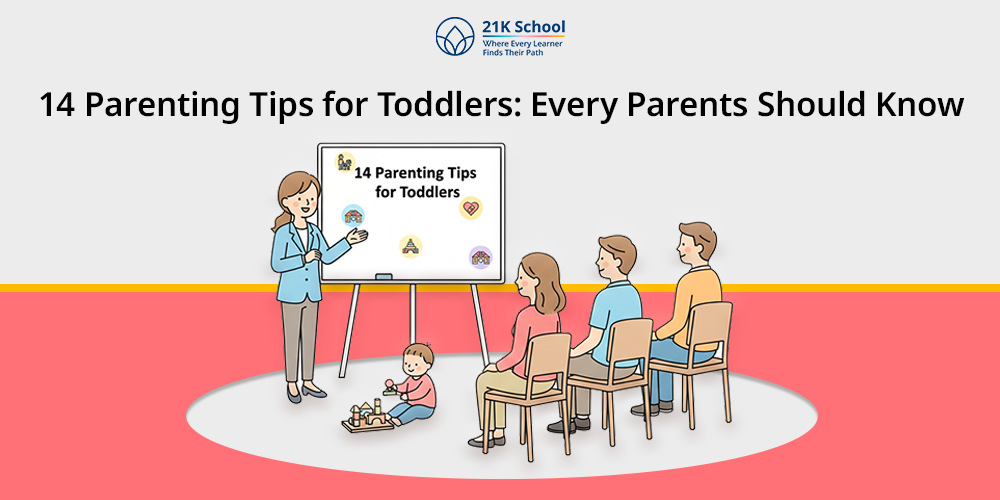
Have trouble raising a kid? What can you do?
When you are parenting a toddler – usually 2 to 3 – you need patience, consistency and rewards for good behaviours in relation to developmental changes and new independence.
If it’s naughty or curious it gets out of hand. Most toddlers will usually follow simple directions, things by shape or colour, copy adults or playmates, have some autonomy, but also allow very exciting new things in thinking/learning and emotional intelligence .
Parenting strategies that promote independence with gentle direction might help parent-child relationships .
Contents
- 1 What are the 14 Best Toddler Parenting Tips?
- 1.1 1. Never Yell at Your Kids
- 1.2 2. Encourage Them
- 1.3 3. Teach Positive Discipline
- 1.4 4. Manage Tantrums
- 1.5 5. Optimise Sleep Schedule
- 1.6 6. Healthy Eating Habits
- 1.7 7. Encourage Independence
- 1.8 8. Avoid Mobile Phones
- 1.9 9. Praise Kids
- 1.10 10. Teach them Empathy
- 1.11 11. Clear Communication
- 1.12 12. Shows Good Behaviour
- 1.13 13. Create a Friendly Environment
- 1.14 14. Create a Routine
- 2 Final Thought
What are the 14 Best Toddler Parenting Tips?
Some tips for parents of growing toddlers are:
1. Never Yell at Your Kids
Screaming may get a toddler to listen now but it does more harm than good later on. Yelling at kids makes them scared, confused or disorientated. Toddlers still learn about emotions and mimic adult behaviour.
Breathe, get down to their level and speak slowly but firmly instead of shouting at kids. This teaches your kid about stress & conflict.
2. Encourage Them
Toddlers should be seen, heard and supported. But with encouragement, they get more confident and go outside.
You can try to button a shirt, stack blocks or use the potty and not be perfect – you can celebrate that. Small things like words of encouragement and emotional support build attachment and self-image.
3. Teach Positive Discipline
Good behaviour requires discipline . Set age-appropriate boundaries and do it, allow toddlers to understand what is bad and what is good.
Redirect, use logic, use a time-in instead of a time-out. Never be harsh or reactive with your child – teach him / her right from wrong and love him / her.
4. Manage Tantrums
Tantrums are part of normal toddler development because toddlers can not express very complex emotions with little language ability.
Not temper tantrums – they’re emotional fits that need direction. Calm them, comfort them and name the feelings. That teaches them about emotional regulation and emotional intelligence.
5. Optimise Sleep Schedule
A toddler needs sleep for health, brain development and emotional well being.
Set a normal bedtime/wake-up time, pre-bedtime routine & keep their sleep environment quiet. This consistency teaches toddlers what to expect and makes sleep less of a daily struggle.
6. Healthy Eating Habits
It is the toddler years that set the stage for lifelong eating habits. You can put some healthy foods in there without pushing them.
Give food neither for reward nor for punishment. In case you can, take your children along to help you make the meals – and become a role model for them also. Be patient: many toddlers need more of a new food experience than they will accept at first.
7. Encourage Independence
Toddlers need independence, parents should give them shoe picking, toy picking or light housekeeping jobs.
It is slower, but it is problem-solving , confidence & responsibility building. Give them autonomy and help when needed, which improves their learning outcomes.
8. Avoid Mobile Phones
Excessive screen time, mobile phone use may affect language development, sleep, social interactions, and attention span.
Outdoor play, storytime, pretend play & sensory play for children are real-life experiences that give them practical knowledge. For screens, find educational material you can watch together with your child to help him/her understand and connect.
9. Praise Kids
This reinforces desirable behaviour & teaches toddlers cause-effect. Praising kids is an effective way to develop social skills and improve their self-image.
Focus on effort & improvement, not outcomes. That gives you motivation and resilience. Children need praise and motivation to perform better in academics.
10. Teach them Empathy
Name your feelings for toddlers by teaching them empathy and sympathy . Let them know that what they do affects other people.
Read books about emotions. Describe how they might feel. Use examples in everyday life. Set an example for your child & others.
11. Clear Communication
Clear communication teaches toddlers what is expected and how to talk in their own language. They need short sentences from their parents.
Slow down and use eye contact to say you are addressing them. To have them say what they feel and need helps with communication and with frustration.
12. Shows Good Behaviour
Toddlers need time, patience and consistency to get used to good behaviour. They learn best from watching parents or caregivers do things.
You gotta tell’ em what went wrong and how they’ d fix it again. But with limits and reasons why certain behaviours are bad, toddlers might make better choices and are more empathy-based.
13. Create a Friendly Environment
Toddlers need play areas and places to learn. Set up so they can play safely & independently.
A secure learning environment reduces student stress . Playing with toys and books helps them too.
14. Create a Routine
A daily routine makes toddlers feel safe and predictable. Parents should make flexible study routines for their children.
They know what to expect-when to eat, play or sleep – and they do less. Regular schedules instill habits of time management skills in toddlers.
Final Thought
Toddlers are hard to raise but the journey is easier if you are patient, consistent and loving. Clear communication, independence, routines & empathy give you a confident, well behaved & emotionally healthy child.
But don’t worry about perfection, just be there for your kid as he/she grows up.
